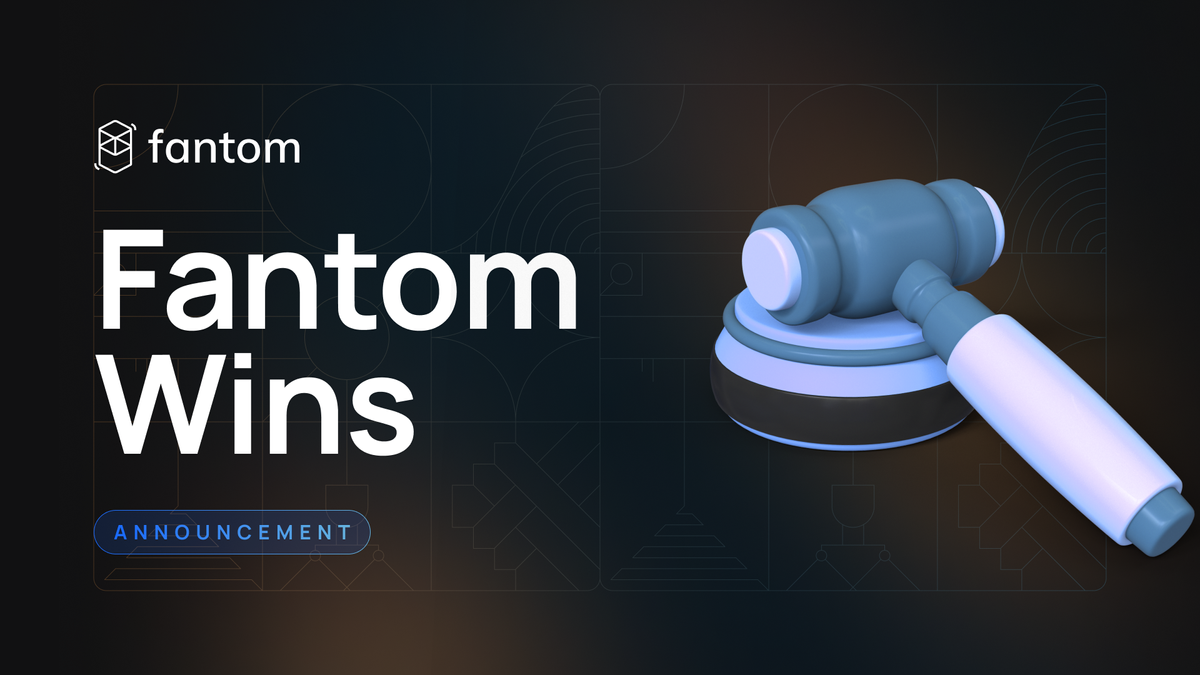Seoul High Court Rules in Fantom Foundation's Favor against SikSin’s CEO Byung-Ik Ahn (안병익) and SikSin (식신 주식회사)

Seoul High Court Rejects the Plaintiff's Claims; Concludes That Andre Cronje Led Fantom’s Development.
A 3-judge panel of the Seoul High Court’s Civil Division 19-3 ruled in favor of Fantom Foundation (the “Defendant” or “Fantom”) against Korean food technology startup SikSin (식신 주식회사) and SikSin’s CEO Byung-Ik Ahn (안병익) (“Ahn”, SikSin and Ahn are collectively the “Plaintiffs”) by reversing the first instance judgment of the Seoul Central District Court (which granted the Plaintiffs’ relief against Fantom for payment of over 198 million FTM in full) and dismissing all relief sought by the Plaintiffs, and that the Plaintiffs shall bear all litigation costs. The Seoul High Court is the appellate court covering the entirety of Seoul, Gyeonggi Province, and Gangwon Province in South Korea.
On July 23, 2019, Ahn and SikSin filed a lawsuit with the Seoul Central District Court against Fantom, which is located in the Cayman Islands. They alleged to have delivered several services in accordance with the service agreements (the “Service Agreements”) they entered into with Fantom for services including the technical implementation of the Fantom Project and the application of Fantom’s technology to the “food technology” (“food tech”) industry in South Korea. The first instance proceedings proceeded without any participation by Fantom, which was unaware of the first instance proceedings. On May 27, 2022, the Seoul Central District awarded Ahn and SikSin a judgment granting all relief sought by Ahn and SikSin, also unknown to Fantom. The Seoul High Court admitted Fantom’s subsequent completion appeal after the regular appeal period of 30 days from the (deemed) service of the judgment expired on the ground Fantom was unaware of the lawsuit “through no fault of its own” until July 11, 2022, when Ahn presented a copy of the judgment to Fantom, and Fantom appealed within the subsequent completion appeal period of 30 days. The subsequent completion appeal system offers a second opportunity to appeal to those who were unable to do so within the regular appeal period due to circumstances beyond their control.
The dispute arises out of the Service Agreements that Fantom respectively entered into with Ahn and SikSin after Ahn “emphasized that the Opera Chain based on the 'Lachesis protocol' to be developed as part of the Fantom Project is an original technology superior to existing blockchain technology and is capable of 300,000 TPS”, and promised to “prove this through the technical paper.” The appellate court agreed that Fantom’s “decision to enter into the Service Agreements appears to have been based on its reliance on Plaintiff Ahn Byeong-Ik's repeated and specific statements regarding the superiority and uniqueness of the Fantom Project's underlying technology, the Lachesis protocol, and in particular the processing speed of the Opera Chain.” However, those “repeated and specific statements” proved to be “unrealizable”.
Furthermore, the appellate court determined that “The design of the ‘Lachesis Protocol,’ aimed at solving scalability issues and achieving a dramatic increase in the number of transactions, was a critical factor which would determine the success of the offering of the Fantom Coin and constituted a core service specified in each of the Service Agreements.” with the “ultimate goal of the successful offering of the Fantom Coin,” and that “the objective which the Defendant intended to achieve through the Service Agreements could not be achieved.”
In addition, the appellate court established that “On 16 April 2018, Plaintiff SikSin entered into a contract titled 'Research on DAG-based High Performance Blockchain Algorithm' with Yonsei University Industry Foundation to prepare a technical paper(s) to prove the contents of the white paper”. However, Fantom discovered that their [draft] technical paper was plagiarized, in that “the First Technical Paper was very similar to the technical paper published by Swirlds Labs, the developer of Hashgraph technology, on May 31, 2016”. This was unrefuted by Ahn and SikSin.
Notably, the appellate court found that Ahn and SikSin not only failed to design viable blockchain technology, but also committed plagiarism, which brought the Fantom Project “to the brink of collapse”.
The appellate court also noted that “in contrast with his description of the Lachesis Protocol in the white paper as a permissionless open-source platform, Plaintiff Byung-Ik Ahn applied for a patent for the “Lachesis Protocol of the Fantom Opera Chain” on June 27, 2018, causing the Defendant to distrust him”.
In light of these circumstances, the appellate court acknowledged that it “cannot be seen as unreasonable” that Fantom chose to establish its own development team led by Andre Cronje and Quan Nguyen, in determining that with the first and second versions of the technical papers, it would be impossible to design the “Lachesis Protocol” the Plaintiffs had promised and that “the application the Plaintiffs were trying to develop was contrary to the direction of the Fantom project” after receiving Ahn’s second version of the technical paper from Ahn on or about July 19, 2018.
“Although the Defendant's development team shared the relevant information and research directions with Plaintiff Byung-Ik Ahn and others and sought their input, there is no clear evidence that Plaintiff Byung-Ik Ahn or the Yonsei University Industry Foundation did not object to the work of the Defendant's development team, or actively engaged in or collaborated with the Defendant's development team to substantially involve themselves or to a make meaningful contribution.” and further stated “the Plaintiffs fail to adequately rebut the Defendant's assertion that the Plaintiffs did not participate in or contribute to the technical implementation of the Fantom project or the refinement of the technical paper, which was led by the Defendant's development team.”
Although Ahn and SikSin “proposed the application of the Fantom Network to the food tech industry in the white paper” they failed to “integrate the Fantom Coin with the food tech industry”. The appellate court further found that, while the Service Agreement between SikSin and Fantom required SikSin to integrate SikSin’s application with Fantom’s technology, “there are no circumstances to suggest that the Fantom Coin was integrated with 'SikSin Application' as its payment method”.
Since Ahn and SikSin failed to fulfill their contractual obligations, “all of the Plaintiffs' claims are without merits and shall be dismissed. Because the first instance court erred in concluding otherwise, the Defendant's appeal is granted, the first instance court's judgment is reversed, and all relief sought by the Plaintiffs are dismissed.”
Michael Kong, CEO of Fantom, stated: “The Seoul High Court’s ruling confirms what we have consistently said for years: that our own development team, led by Andre Cronje and Quan Nguyen, created the success we have today. I thank the court for their careful review of the facts and evidence in this case. I also thank our counsel RosettaLegal for their hard work and determination to achieve this great outcome.”
Lawyers Young Seok Lee and Jeong Min Lee from RosettaLegal, who represented Fantom, commented: "We took over the case in November 2023 in the middle of the appellate proceedings from a prominent law firm which had been handling the case for over a year since July 2022. We faced the challenge of reviewing a substantial volume of materials already filed with the court, familiarizing ourselves with the relevant facts, and presenting the necessary arguments and additional evidence to the court — all within a short period of time. However, the more we reviewed the materials, the more the pieces of the puzzle of Fantom's arguments began to fall into place. We are very satisfied that the appellate court made its decision based on this completed puzzle."
Copies of the judgment can be found here:



